Unmarried women lean heavily towards Democrats in the upcoming midterms, unlike men and married women
The Democratic Party has put faith in victory in the hands of women since the first sightings of the gender gap in the 1980 election (one which the Democrat, Jimmy Carter, lost despite performing better with women than with men—“better” only meant breaking even). Democratic success is a matter of two things: the share of the vote cast by women, and the amount of that vote won by the Democrats.
According to exit polls, women made up 54% of the voters in 2004, but the 51% share of their vote that went to Democrat John Kerry was not enough to elect him. Men supported George W. Bush. In 2008, however, 56% of women voted for Barack Obama; when combined with the vote of men, who split evenly between Obama and Republican John McCain, Obama emerged victorious.
Congressional midterm elections have been even more mercurial: in 2010, when the Republicans regained control of the U.S. House of Representatives, women who split their votes, while men gave the Republicans a 14-point margin, and victory. When the Democrats were victorious in 2006, women gave them a 12-point edge (Democrats also edged out Republicans that year with men).
In polls, women continue to be more Democratic than men. And they are more likely to say they will vote Democratic in this year’s House races. The differences are substantial. Among registered voters in this week’s Economist/YouGov Poll, women give Democratic House candidates an enormous lead, while men favor the Republicans by 9%.
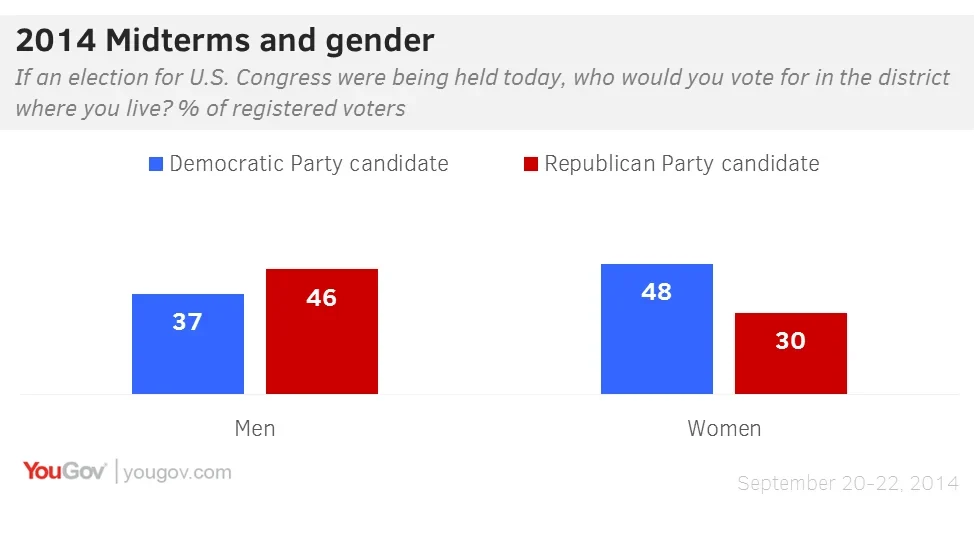
However, Democrats don’t get the support of all kinds of women. They do especially well with those women who are not currently married. In fact, the support that unmarried women give to the Democrats in this poll is overwhelming. More than twice the number of registered unmarried women in this week’s poll currently support the Democratic candidate for the House of Representatives than favor the GOP. On the other hand married women actually favor Republicans.
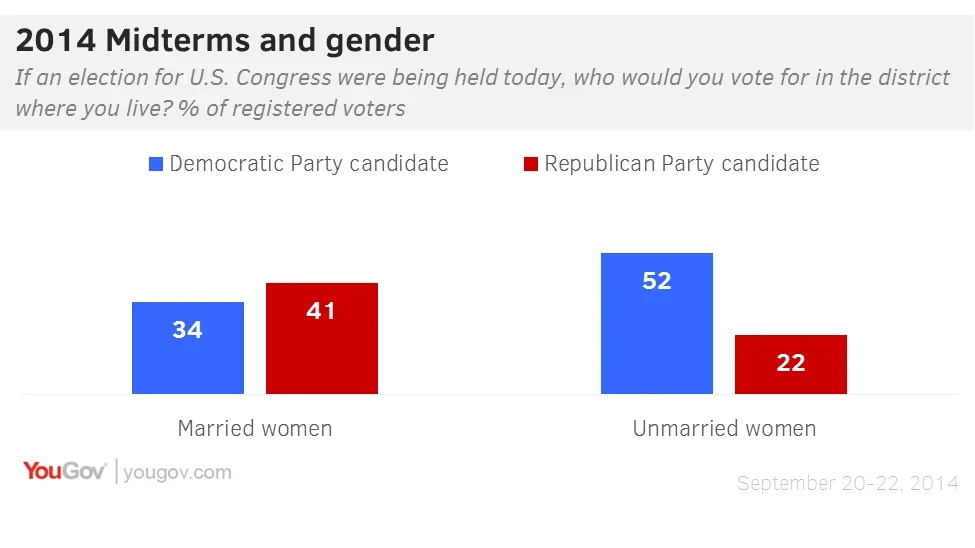
There is also a marriage gap among men. Married men favor the GOP by more than two to one. Unmarried men support Democrats.
There may be many reasons for this. But one important one is age. Younger adults are less likely to be married, and younger voters favor the Democrats. In general, older voters are more likely to call themselves conservatives, and Republicans.
However, there are also some perceptions about the parties where married and unmarried women differ. Both men and women overall rate the Democratic Party as better than the Republican Party for women. But married women are much less sure. And when it comes to judging the party best for families, married women give the Republican Party a clear edge.
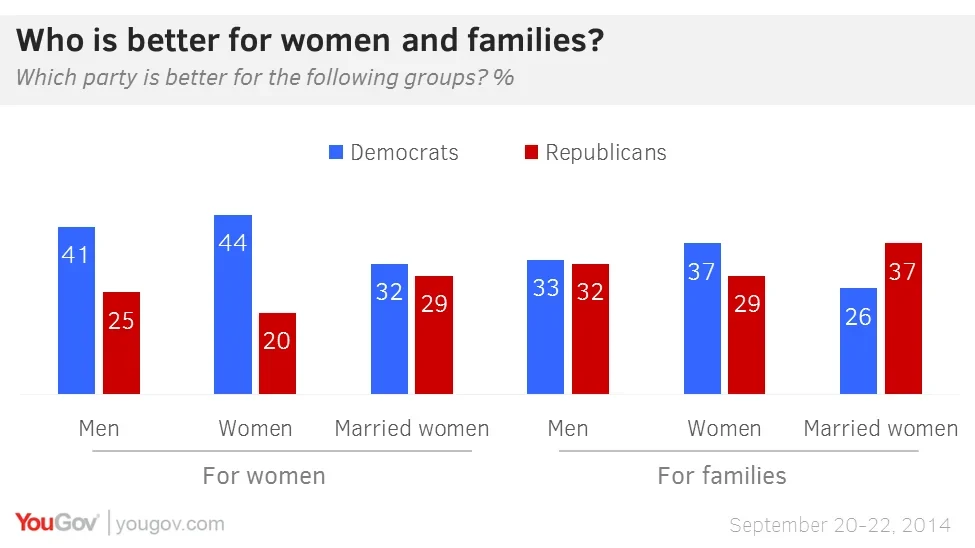
Married women are not as likely as unmarried women to see discrimination in the workplace, although most of them believe there continues to be some discrimination there. What they do see differently from unmarried women is the impact of a particular workplace behavior: assertiveness on the part of women. 40% of married women say this is a major cause of salary differences between men and women in the workplace, but 60% of unmarried women think this.
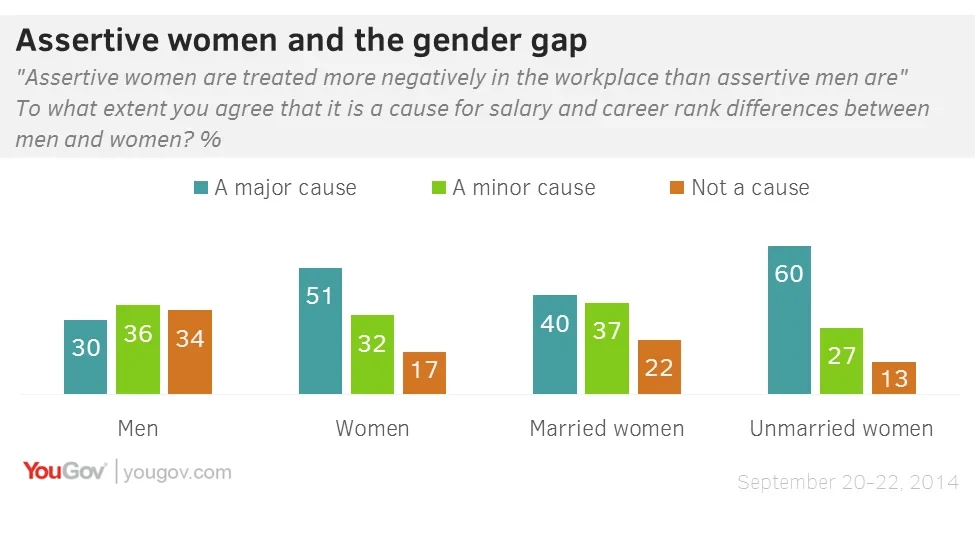
Married women are still more likely than men to think assertiveness holds back women in the workplace.
The conservatism of married women (half of them describe themselves as ideologically conservative, compared with a quarter of unmarried women), also shows up in answers to question about one social issue: whether gays and lesbians should be permitted to legally marry. Like men, married women narrowly oppose same-sex marriage (though married women are more closely divided than men). Unmarried women are overwhelmingly in favor.
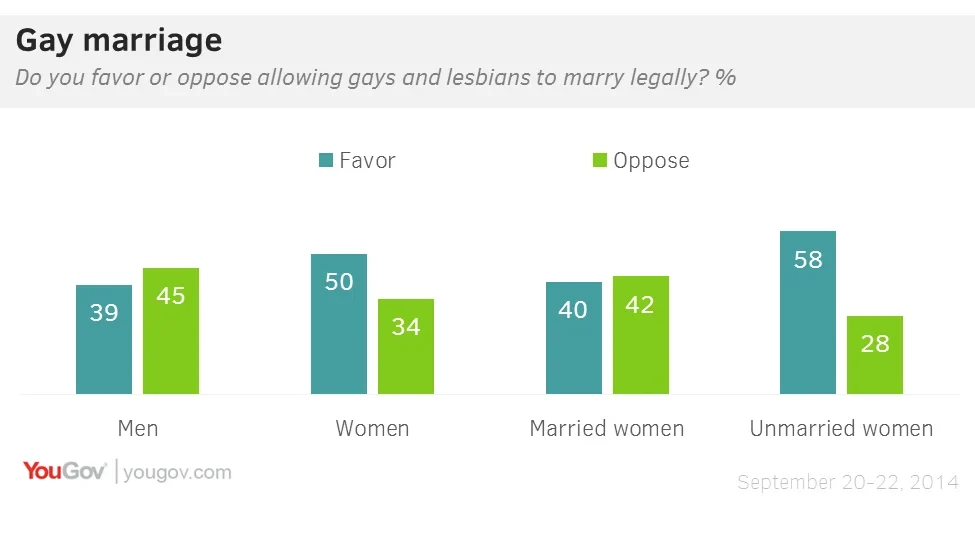
Full results can be found here.
Economist/YouGov poll archives can be found here.








